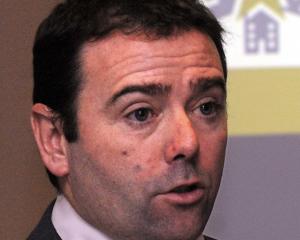
A new taskforce will develop a strategy based in part on a 40-point action plan to reduce alcohol-related harm developed by Otago University Students' Association events manager Vanessa Reddy.
The plan was presented to the Alcohol Advisory Council Conference in Auckland yesterday.
Working as the events manager for the OUSA, Ms Reddy (34) said she had witnessed first-hand the problems binge-drinking could cause.
"I've seen a lot of harm coming to students... including hospitalisation and violence."
Ms Reddy, with funding from the university, OUSA and the Dunedin City Council, spent 2009 in the United States researching how universities there had changed their binge-drinking cultures.
The result was the 40-point plan, which she presented to university Vice-chancellor Prof Sir David Skegg earlier this year.
The action points range from introducing broad-ranging alcohol-related policy changes and education to more practical ideas, such as scheduling more lectures and tests on Friday mornings in order to reduce excessive Thursday night drinking.
Ms Reddy, who would be a member of the taskforce, emphasised the plan was a long-term, holistic approach to changing a culture.
The idea would be developed by way of five-, 10- and 15-year plans at Otago University.
"It's never going to be one thing that does the trick but lots of initiatives involving all aspects of life over a period of time."
OUSA president Harriet Geoghegan said the taskforce was a positive move and the association wanted to be part of the move to help minimise the harm caused by alcohol.
One of the action points was establishing a "sober-up safely facility" where intoxicated students would be monitored until their blood-alcohol level was at a certain point. They would be charged $200, and if the bill was not paid within a week, and hardship was not an issue, the account would be sent to their parents.
Ms Reddy said while something like the sober-up facility could take up to 10 years to develop, introducing requirements for landlords to adhere to - such as cleanliness standards, property maintenance schedules and after-party inspections - might take only a year to establish.
Some of the action points in the plan were already developing within different areas of university life.
Student Health was this year running a pilot in two residential halls involving residential assistants asking intoxicated students for an informal chat the following day about their drinking.
This was followed up with an online survey designed to help students question their motivation for drinking and think about changing their habits.
ACTION POINTS
• Cheaper alternative activities, discounts for swimming, movies etc.
• Reduce liquor-outlet density around campus.
• Orientation for parents of new students.
• Text-alert system telling people to drink water, eat something or stick to one drink an hour.
• At the start of the year, the vice-chancellor, mayor and other key people visit students in flats in problem streets.
• More alcohol-free events on and off campus.
• Offer incentives to hall residents to eat a meal before going out.
• Identify the heavy-drinking population.
• Establish a community liaison officer to help students.




